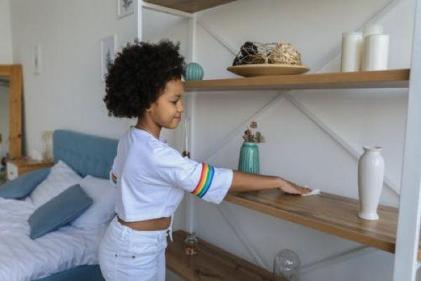By 12 months, your child might know a word or two and will constantly try to imitate sounds and speech. The result is a seemingly random language that only your child understands. This is normal and important to speech development. After the first attempts at saying words comes exponential growth in speech ability over the next couple of years.
Your child's vocabulary will increase steadily. Between the ages of two and three years, your child will use about 300 words, but will understand up to 900 words. Your child will begin experimenting with talking at different volumes – most of the time the alternating whispering and shouting will not fit the context, but it is part of the learning process. By the age of two, your child will be able to use verbs and pronouns and speak in short simple sentences. Irregular verbs will still be too difficult to master, so expect phrases such as “I runned” instead of “I ran”. The basic concepts of how words work are understood by two-year-olds, such as adding “-ed” to the end of a word to describe something that happened in the past. At this stage, your child should be able to answer basic questions, to do with 'who' and 'where'. If your child simply repeats the end of a question to you constantly, without providing any kind of answer, you should let your paediatrician know. By the age of three, most children are able to speak fluently enough that strangers can understand them. At this age, your child should be able to have a proper conversation, using the correct tone and volume for the situation.
To help develop your child's speech ability, make sure that you talk in proper, full sentences. Avoid using short words and phrases; resist the urge to babble in baby-talk back to your child. Children copy what they hear, so using real words and sentences in their presence is important. Reading to your child does a lot of good. Children associate words with pictures and this speeds up learning for them. Books help boost a child's vocabulary and learn proper grammar. Even spending time just talking to your child helps. Mealtimes and bedtimes are when most parents engage in conversation with their children. For many parents, these are the only quiet times they have during a busy day.
If, at the age of two, your child does not attempt to imitate words, or doesn't react when you call from behind, your child may have a speech or hearing problems. If your child has trouble with vowels or consonants, seek help from a speech therapist. If your child avoids eye contact, has trouble naming simple everyday objects, or cannot use more than one word at a time, there could be cause for concern.
Stuttering is a normal phase to go through, it is usually caused by your child's ability to think and process information faster than being able to talk. After a while, the stuttering will go away, but if it continues and your child really struggles to form words, you should consult your doctor. Your child will become more and more talkative with age, often chatting endlessly about absolutely anything.
Your child's vocabulary will increase steadily. Between the ages of two and three years, your child will use about 300 words, but will understand up to 900 words. Your child will begin experimenting with talking at different volumes – most of the time the alternating whispering and shouting will not fit the context, but it is part of the learning process. By the age of two, your child will be able to use verbs and pronouns and speak in short simple sentences. Irregular verbs will still be too difficult to master, so expect phrases such as “I runned” instead of “I ran”. The basic concepts of how words work are understood by two-year-olds, such as adding “-ed” to the end of a word to describe something that happened in the past. At this stage, your child should be able to answer basic questions, to do with 'who' and 'where'. If your child simply repeats the end of a question to you constantly, without providing any kind of answer, you should let your paediatrician know. By the age of three, most children are able to speak fluently enough that strangers can understand them. At this age, your child should be able to have a proper conversation, using the correct tone and volume for the situation.
To help develop your child's speech ability, make sure that you talk in proper, full sentences. Avoid using short words and phrases; resist the urge to babble in baby-talk back to your child. Children copy what they hear, so using real words and sentences in their presence is important. Reading to your child does a lot of good. Children associate words with pictures and this speeds up learning for them. Books help boost a child's vocabulary and learn proper grammar. Even spending time just talking to your child helps. Mealtimes and bedtimes are when most parents engage in conversation with their children. For many parents, these are the only quiet times they have during a busy day.
If, at the age of two, your child does not attempt to imitate words, or doesn't react when you call from behind, your child may have a speech or hearing problems. If your child has trouble with vowels or consonants, seek help from a speech therapist. If your child avoids eye contact, has trouble naming simple everyday objects, or cannot use more than one word at a time, there could be cause for concern.
Stuttering is a normal phase to go through, it is usually caused by your child's ability to think and process information faster than being able to talk. After a while, the stuttering will go away, but if it continues and your child really struggles to form words, you should consult your doctor. Your child will become more and more talkative with age, often chatting endlessly about absolutely anything.



